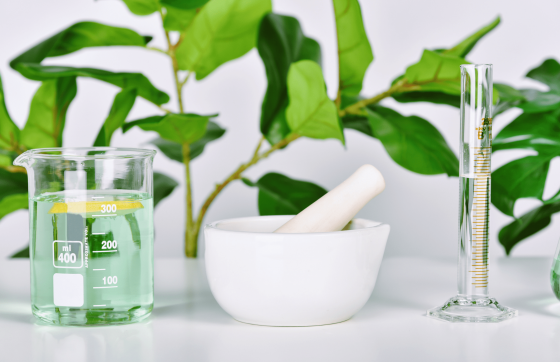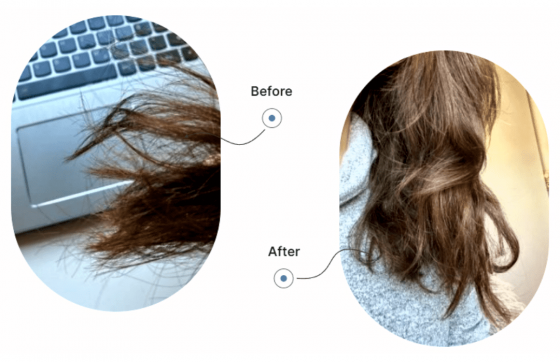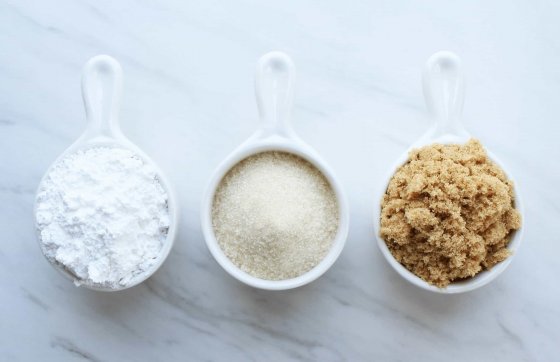
Shopping for Hair Oils: What Do You Need to Know? [2023 Guide]
![Shopping for Hair Oils: What Do You Need to Know? [2023 Guide]](https://blog.hairqare.co/wp-content/uploads/cache/2022/04/pexels-mareefe-5378795-1-scaled-680x432.jpg)
Table of contents
Overwhelmed when it comes to buying a hair oil? Great! We’ve got tips on how to make your oil shopping so much easier!
Whether you’re looking through the haircare aisle or heading straight to the food section, it is important to know what you’re up against, what to look for and what to avoid, and how to spot good oil from bad oil.
It goes without saying, of course, that you have to do due diligence and research on the different types of oils beforehand. You’ll have to identify your hair type and find out which types of oils are most appropriate for your needs and the different types of treatments you wish to try.
If you've already done the due diligence and figured out your hair profile and what it needs, then this post is for you. We will be primarily focused on the shopping part of finding the perfect hair oil.

The Oil Aisle
The vastness and variety of choices of oils can be intimidating. It intimidates even the most experienced of us: this labyrinth of oil shelves and the maze of an ingredient list.
Everything you need to know about your hair product, you’re supposed to see in the fine print of the back label. Take the time to read every listed ingredient and find out how natural it actually is.
A good rule of thumb in buying oils (and hair care products, in general) is this: if you can’t pronounce it, chuck it! The closer you are to more natural ingredients, the easier it is to buy and the better they are for your hair.
Beware the Word ‘Natural’
There is no other word in the English dictionary that the cosmetics industry has overused more than “natural.” And we know why: “natural” sells. The haircare market is tired of the chemical and the synthetic because everyone now knows they do the hair more harm than good.

As a result, manufacturers often disguise their products as “natural” even though they have incredibly harmful ingredients in them. So when you see natural, just make sure to put your magnifying glasses on and read the labels even more closely.
If you'd like to understand more about what "natural" products are still harmful, please read this post on nasty shampoo ingredients here.
Fragrance Oils Are Not Good for Your Hair!
One of the most commonly mislabeled oil products out in the market today is essential oils. Its rise in popularity in the last couple of years has made it so attractive and profitable for many oil marketers to make synthetic fragrance oils as natural essential oils – but this could not be farther from the truth.
The only thing, perhaps, that is similar between essential and fragrance oils is that they are oils. The rest of them are as similar as night and day.
First off, what are essential oils?

Essential oils are the purest and most natural you can ever get to a plant’s oil. They are usually extracted by steam distillation and are not combined with anything else like water or alcohol. Outside of extraction and bottling, there is hardly anything else done to essential oils.
Fragrance oils, on the other hand, are made in the laboratory.
There are synthetic fragrance oils which are chemical compounds created and manipulated to copy a natural scent; natural fragrance oils, on the other hand, are derived from natural sources manipulated in the laboratory to extract its aromatic components and create a similar smell.
If you’re looking for an oil that you’re looking to use oil for your hair, fragrance oils are a no-no.
Essential Oils Should Not Be Used for Hair Health
Essential oils are often so pure and so potent that they carry the risk of irritation when applied directly to the skin or scalp. For this reason, they are best used for their anti-skeptic and aromatic properties, rather than for nourishing or moisturizing the hair or scalp.

To enjoy the benefits of essential oils for your hair, you’ll need the help of what we call carrier oils.
Unlike essential oils which are derived from the plants’ leaves, bark, and blossoms, carrier oils are fat-rich, plant-based oils derived from nuts, kernels, or seeds that are used to dilute essential oils.
Some of the most popular types of carrier oils are coconut, olive, jojoba, grapeseed, avocado, almond oils, and shea butter.
One other common cause of confusion amongst haircare newbies is the difference between virgin oils and organic oils, as in the case of virgin coconut oil and organic coconut oil, or in the case of organic versus virgin olive oil.
A product’s being organic (or not) refers to the way the crops were grown. Organic crops were raised without synthetic fertilizers, insecticides, pesticides, etc.

While it’s easy to make organic claims on anything, what you need is proof from a standard-giving body (for example, the USDA in the United States) that the product was actually raised in a certified organic manner.
On the other hand, what makes your oil virgin or not does not involve the crop per se but in the manner of extraction. Where organic refers to crops raised without any synthetic elements to it, oils that are virgin are extracted without the use of chemicals or heat.
The most popular method of extracting virgin oils as in the case of extra virgin olive oils is a process called cold pressing. Cold pressing means that the temperature of the olives never went past 27-degrees C at any point of the process. Extra virgin oils are also unrefined – it has not been exposed to heat or enhanced with anything.

Final Thoughts
Remember, the biggest mistake you can make when shopping for oils for your hair is taking a product at face value. That extra step of reading through the ingredient list will make a whole world of difference in the outcome of your hair care. You can learn about the good and bad ingredients by joining our 14 Day Haircare Challenge!







